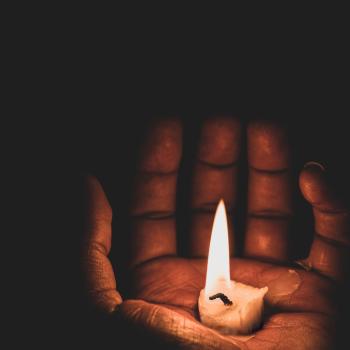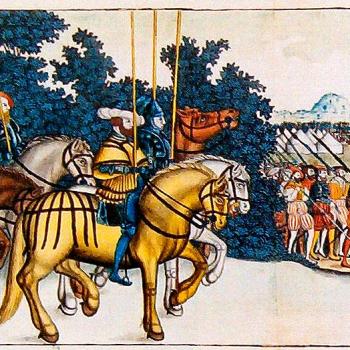Last week I answered some of the most common questions that I receive about doing ancestor work well. During the course of writing that article, I received one question that seemed important enough to warrant its own column, a question that is actually three questions in one:
- How do you honor ancestors with whom you had a complicated and not always good relationship in life?
- What do you do with ancestors whose actions in life (for instance, like being instrumental in genocide) are actions that you completely disavow?
- Moreover, what do you do when some of your ancestors were the victims of atrocity, and the others were those who perpetrated those self-same atrocities?
Light stuff, right?
These questions are so involved and so very complex even to an ancestor worker like myself that I actually called my colleague Laura Patsouris (without a doubt the most gifted ancestor worker I know) for a consult! We hashed out what we would advise in such a situation and that's the advice that I'm going to give here, but in truth there's no easy, pat answer. I don't know what I would do really, until I were faced with that situation and did the necessary divination (or, if I weren't a diviner, sought out someone to do so for me) and prayed to my Gods and Disir (ancestral guardians, powerful female ancestors) for guidance. Still, this might give you a working game plan, should you find yourself in this situation with no one nearby to consult.
Question A
This is actually the easiest of the questions to answer. It's really not all that uncommon a thing. It's important to remember that relationships can continue to grow and evolve and even heal after a relative's death. In a situation where the relationship in life was unhealthy or hurtful, you have a couple of options. You can call upon your other ancestors to help you repair the relationship or you can begin a series of elevations to help heal that ancestor.
It might take time, but it is possible to work through a great deal of hurt and anger and to turn such a relationship into a strong ancestral bond. There has to be willingness on both sides, though. If the living relationship was so abusive and so hurtful that even contemplating an elevation is a horror, then there is no need to do so. You can always appeal to older, stronger ancestors, to your Disir, to the guardians of your ancestral line (we all have dead who take this role) to keep that person away. What you do depends on the nature of the relationship and its history. There is no one answer here.
Question B
There's a big difference between dealing with an ancestor who may have been personally hurtful in life, or who may have been an asshole (we all have those people in our lines somewhere), and dealing with an ancestor who was a sociopath, a war criminal, the willing participant in genocide or someone who committed a massacre, or who might have been a serial killer, etc. What do you do then?
I have to admit, this question really left me at a loss. It's one that I knew I'd have to address sooner or later, but I'd been trying to make sure it was "later" rather than now. Still, people are asking and it deserves an answer. What do you do if, for instance, your grandfather was Josef Mengele?
I'll share my colleague's advice first:
Most people would do exceedingly well to leave a sociopathic ancestor alone. Or, if that ancestor starts making trouble, appeal to some stronger members of one's ancestral house to keep the deviant one effectively sidelined. I personally would not honor such an ancestor. Now, if you want to be Machiavellian, and you are someone who engages in some rougher forms of magic, you might be of a mindset that this is potentially an ancestor who would be willing to do some very dirty things to your enemies for payment. That is a possibility, though I wouldn't suggest it personally.
I tend to agree with Laura: healing an ancestor and developing a relationship with an ancestor has to be reciprocal. Unless I were pushed to do so by my other ancestors (or the Gods), I very likely would not honor such a person, or attempt to engage with them in any way. Some traditions even have specific rituals to bind such spirits away from one's ancestral house. Moreover, courting such an ancestor in the hopes of having a willing servant is not only dangerous, but also stupid. It has the potential to lead to one being attacked by that ancestor and then fed upon and possibly even corrupted by the lich.





